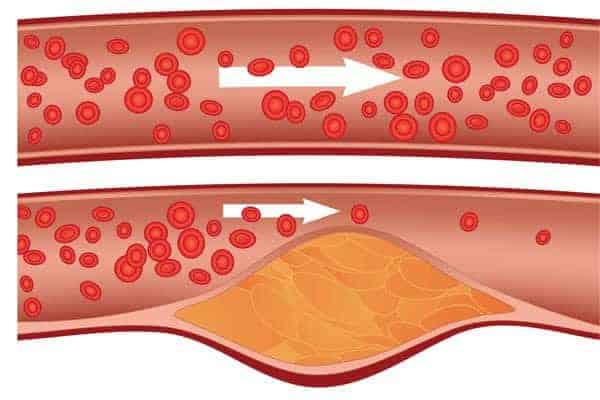Eat More Fiber and Watch What Happens to Your Digestion, Weight, and Energy
Fiber isn’t just another dietary buzzword—it’s a foundational nutrient with far-reaching benefits. Adding more fiber to your daily meals can transform how your body digests food, manages weight, and maintains energy throughout the day. Most people don’t realize that fiber does much more than keep you “regular.” It supports gut health, helps you feel fuller for longer, and even stabilizes blood sugar. Get ready to discover the surprising, science-backed ways that eating more fiber could revolutionize your health and well-being.
1. Smoother Digestion

Eating more fiber is one of the simplest ways to achieve smoother, more regular digestion. Dietary fiber adds bulk to stool, making it softer and easier to pass, which helps prevent constipation and strain on the digestive tract. High-fiber diets are consistently linked to fewer digestive complaints, while low-fiber diets often result in sluggish bowels and discomfort. By gently stimulating your intestines, fiber soothes the entire digestive process, leaving you feeling lighter and more comfortable each day. For more details, see the Mayo Clinic’s overview of fiber and digestion.
2. Reduced Bloating

Fiber does more than keep things moving—it also supports a balanced gut microbiome. By nourishing beneficial bacteria, fiber helps reduce the gas and bloating often associated with low-fiber diets. Efficient waste removal means less buildup in your digestive tract, translating to less discomfort and a flatter feeling stomach. Many people notice a dramatic difference in bloating relief after steadily increasing their fiber intake. Learn more about fiber’s effects on gut bacteria from the Harvard Medical School.
3. Enhanced Gut Microbiome

Fiber acts as a prebiotic, serving as food for the beneficial bacteria in your digestive system. A thriving gut microbiome supports not just better digestion, but also a stronger immune system and improved mood. Eating fiber-rich foods like beans, lentils, oats, bananas, and asparagus encourages a diverse range of healthy bacteria to flourish. This diversity is linked to lower inflammation and more resilient health overall. To dive deeper into the link between fiber and gut microbiome health, visit the Healthline guide to prebiotic foods.
4. Longer-Lasting Fullness

One of the most noticeable effects of eating more fiber is a sustained feeling of fullness after meals. Fiber-rich foods slow down digestion, which means you’ll feel satisfied for longer and be less tempted to reach for extra snacks. In contrast, processed, low-fiber meals are quickly digested, often leaving you hungry soon after eating. This satiety effect is a powerful ally for anyone looking to manage portions or control hunger. The CDC explains how fiber can help with appetite control and weight management.
5. Steadier Blood Sugar Levels

Soluble fiber is a key player in maintaining stable blood sugar. By slowing the absorption of sugar into your bloodstream, fiber helps prevent the rapid spikes and crashes that can zap your energy and mood. This effect is especially beneficial for people managing diabetes or insulin resistance, as it supports better long-term glucose control. Foods like oats, barley, lentils, and beans are particularly effective at promoting even blood sugar levels. For more on this, see The American Diabetes Association’s overview of fiber and diabetes.
6. Easier Weight Management

Fiber is a powerful ally for weight control. Because it adds bulk without extra calories and helps keep you full, fiber naturally reduces overall calorie intake and discourages overeating. Numerous studies link high-fiber diets to lower body weight and a reduced risk of obesity. For instance, research published by the National Institutes of Health highlights that increased fiber consumption supports fat loss and makes it easier to maintain a healthy weight over time.
7. More Stable Energy Throughout the Day

Eating fiber-rich foods sets you up for consistent, lasting energy. Because fiber slows the digestion of carbohydrates, it helps prevent the sharp rises and falls in blood sugar that can lead to afternoon fatigue. People who start their day with a high-fiber breakfast—think whole grain oats or fruit—often report feeling energized and focused for hours, unlike those who opt for sugary or refined carb-heavy choices. For more on this effect, visit Harvard T.H. Chan School of Public Health.
8. Lower Cholesterol Levels

Soluble fiber, found in foods like oats, beans, and many fruits, has a proven ability to help lower cholesterol. It works by binding to cholesterol particles in the digestive tract, preventing their absorption into the bloodstream. This natural process helps reduce LDL (“bad”) cholesterol and supports long-term heart health. Regularly including fiber-rich foods in your diet can make a real difference. Learn more about how fiber lowers cholesterol from the American Heart Association.
9. Reduced Risk of Digestive Disorders

Getting enough fiber isn’t just about comfort—it’s also vital for long-term digestive health. High-fiber diets help prevent common issues like diverticulosis and hemorrhoids by keeping stools soft and reducing strain during bowel movements. Emerging research even suggests that fiber may lower the risk of colorectal cancer, with populations consuming the most fiber experiencing the lowest rates of these disorders. For more information, see the American Cancer Society’s recommendations on fiber and cancer prevention.
10. Easier Weight Loss Maintenance

Maintaining weight loss can be challenging, but a high-fiber diet makes it much easier. Fiber keeps you feeling full on fewer calories, which curbs hunger and helps prevent overeating. It also supports a healthy metabolism by promoting steady digestion and nutrient absorption. Simple tips like swapping white bread for whole grains or adding beans to salads can help you stay satisfied and stick to your goals. For practical strategies, check out the Harvard Nutrition Source.
11. Improved Hydration

Fiber plays a subtle but important role in hydration by helping the digestive tract retain water, which keeps stools soft and supports smoother elimination. Including hydrating, fiber-rich foods like cucumbers, oranges, strawberries, and leafy greens can boost your daily fiber and fluid intake at the same time. This synergy not only aids digestion but also contributes to better overall hydration. For more on the connection between fiber, water, and health, see the Academy of Nutrition and Dietetics.
12. Better Nutrient Absorption

Fiber’s ability to slow digestion gives your body more time to absorb essential vitamins and minerals from food. When digestion happens too quickly—often after eating low-fiber meals—valuable nutrients can pass through the gut before being fully taken in. A steady, fiber-supported digestive pace allows for more efficient nutrient uptake, supporting everything from bone health to immunity. For a deeper look at fiber’s impact on nutrient absorption, visit the National Library of Medicine.
13. Lowered Inflammation Levels

A high-fiber diet is linked to lower inflammation throughout the body, which can help protect against chronic diseases like heart disease, diabetes, and certain cancers. Fiber promotes the production of beneficial compounds in the gut that have anti-inflammatory effects, supporting overall wellness. Numerous studies show that people consuming more fiber have reduced markers of inflammation compared to those on low-fiber diets. For more on fiber’s anti-inflammatory benefits, see the National Library of Medicine’s review on dietary fiber and inflammation.
14. Stronger Immune Function

Your gut is a major hub for your immune system, and fiber is crucial for keeping it strong. By feeding beneficial gut bacteria, fiber encourages the production of compounds that help regulate immune responses and fight off harmful invaders. Foods like garlic, onions, whole grains, and berries are rich in fiber and also known for their immune-supporting properties. To learn more about the connection between fiber and immune health, see this National Library of Medicine article.
Conclusion

The benefits of eating more fiber go far beyond just keeping your digestion on track. From smoother digestion and reduced bloating to better weight control, steadier energy, and a stronger immune system, fiber is a true powerhouse for overall health. Incorporating more fruits, vegetables, whole grains, and legumes into your meals can set you on a path toward a more vibrant, energized life. Start simple, make gradual changes, and watch as fiber transforms your well-being—one meal at a time. For more tips, visit the Academy of Nutrition and Dietetics.
.article-content-img img { width: 100% }




